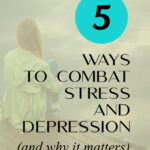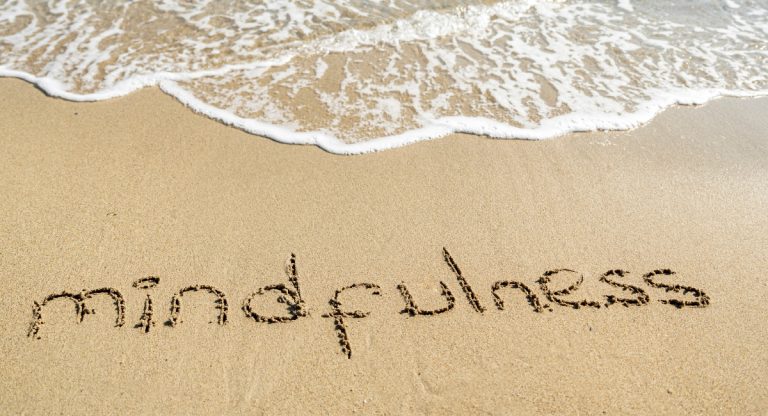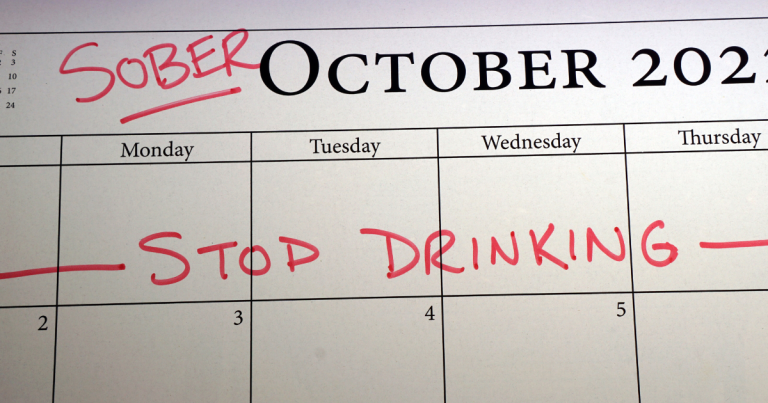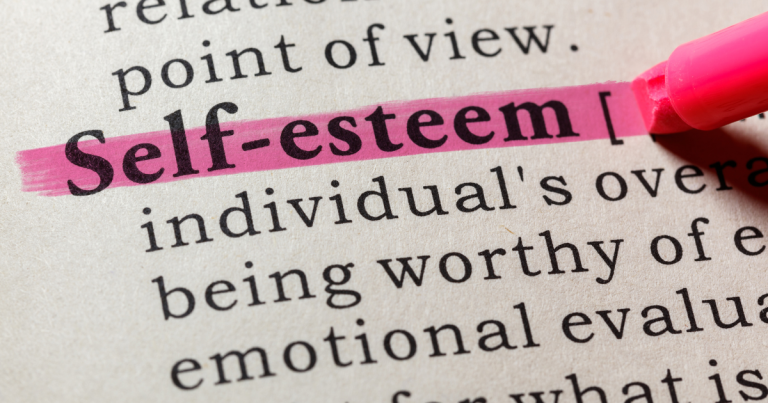5 Ways to Combat Stress and Depression (and why it matters)
Last Updated on 1 year by Iva Ursano
Do you constantly find yourself feeling stressed or overwhelmed with your responsibilities? Experts say that people under high stress can experience unhealthy heart rate increases, a quickening of breath, and stress-related blood pressure rises as the body prepares to fight or flee from the source of the stress.
If this sounds like you, you’re not alone.
Millions of Americans report dealing with high levels of stress each year. Elevated levels of stress can often lead to depression, physical health issues, and other serious mental health issues as your mind and body struggle to find ways to cope with living in constant fear of the unknown.
In this article, we talk about the effects of chronic stress on the mind and body, five ways to combat stress, and provide examples of the next steps to take for managing stress and depression more effectively.
It’s important to apply these ways to combat stress and depression
Sharing these ways is just a start. Reading them helps too but you must also apply them. It’s easy to fall into a dark hole and get stuck there. When you are given the tools to combat stress and depression it can be hard to actually take the steps to apply them.
Taking the first step, applying the tools, maybe the hardest but once you get started and see the positive results you will continue to, and want to, keep working at reducing stress and avoiding depression
Let’s start by learning about the effects of prolonged periods of stress on the mind and body.
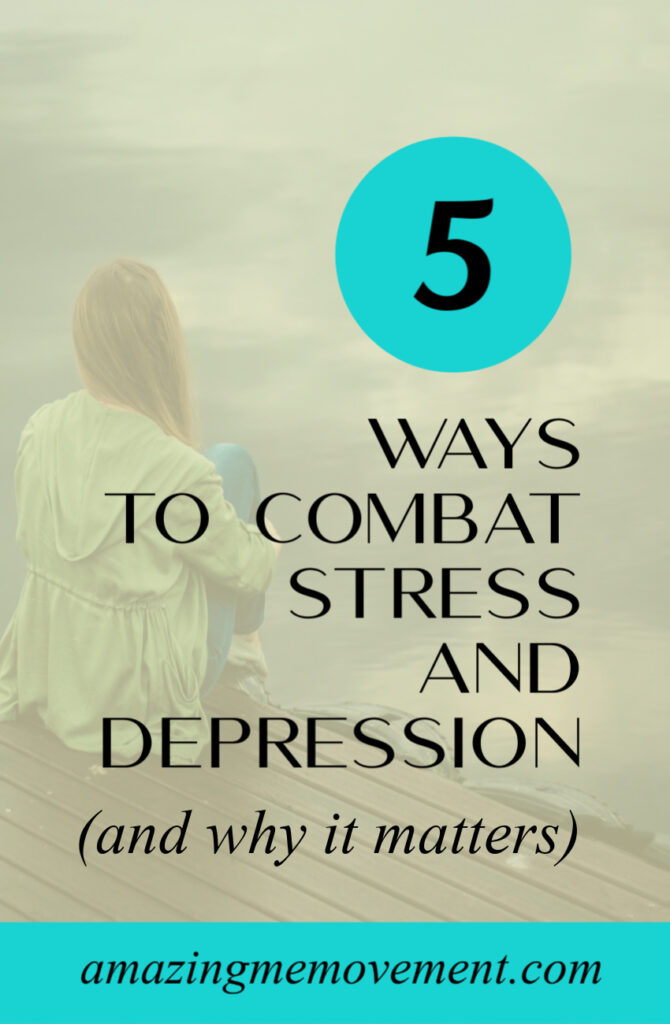
Effects of Stress On The Body And Mind
According to the Oxford Dictionary — the definition of stress is as follows:
“A state of mental or emotional strain resulting from adverse or very demanding circumstances”.
People who live with chronic stress are in this state of mind for prolonged periods of time. Chronic stress can last for days, weeks, and even years. Left untreated, it can take a mental and physical toll on your well-being.
Everyone experiences stress in one form or another in their lives. Some stress is good for us. In small doses, it has positive effects like improved mood and reduction in physical symptoms.
For example, preparing for the birth of a new baby, getting a promotion at work, and other stressors that have positive consequences of improving your quality of life by welcoming a new family member or generating more income as the result of a promotion.
When stress becomes chronic or excessive, however, negative effects can take hold of the body and mind. Long-term exposure to stress can have damaging and lasting effects.
According to WebMD, stress can have the following effects on the mind and body:
- Increased Heart Rate
- Shortness of Breath
- Panic Attacks
- Chronic Mental Health Disorders
5 Easy Ways To Combat Stress and Depression
Learning simple ways to combat stress is essential for better health. People who suffer from issues with chronic stress report more physical and mental health-related symptoms than people who experience less stress in their lives.
Effectively managing stress isn’t as complicated as you might think.
Making small changes in your daily routine to add in exercise and self-care routines is a great way to start reducing it on your own.
Here’s a great video from the BetterHelp YouTube channel about signs of depression you shouldn’t ignore. Take a few minutes now to watch it.
Exercise

Participating in regular exercises like walking, yoga, calisthenics, strength training, and cardio is a fast and efficient way to get your mind and body moving in the right direction. Endorphins released during exercise act as a natural stress reliever that can help ease the symptoms of depression and stress.
Regular exercise has both mental and physical health benefits that include a reduction in mental health and negative medical health symptoms. People who exercise regularly report higher satisfaction with their quality of life than people who don’t exercise regularly.
Therapy

When life becomes overwhelming and nothing that you do seems to help, it’s time to seek help from a professional. Sessions with a licensed psychotherapist provide you with a new perspective on life and coping skills that help you become more resilient when times get tough.
Therapists, psychiatrists, and primary care providers work together to provide a holistic therapy solution including medication management for people with moderate to severe mental health disorders like anxiety, post-traumatic stress disorder, bipolar disorder, and depression.
Getting therapy online is now a viable option for many people suffering from mental health disorders making it possible to get therapy from the comfort of their homes and offices.
Self-Care

As we go about our busy lives taking care of everything (and everyone else) around us, many of us forget to stop and take some time for ourselves. Without the capacity to recharge and reboot by doing things you love, it is easier for stress and depression to sneak up and take hold.
Taking time out to spend time engaging in activities and pastimes that feed the soul can work wonders for your well-being.
Ask yourself, when was the last time you went for a peaceful stroll, run, or taking time out for quiet meditation? According to extreme self-care expert Cheryl Richardson, taking time out for self-care can help you identify areas in your life where you feel deprived and other areas that need work.
Having alone time gives us and our loved ones the opportunity to process the things that have been going on in the world around us. Spending time in quiet reflection and doing what you love is a necessary way to recharge and reboot.
Lifestyle Habits

As much as we don’t like to admit it, our habits shape our lives. If we are constantly taking part in unhealthy behaviors, we are limiting our own potential at times. While no one is perfect (and isn’t expected to be) making improvements in an unhealthy lifestyle can drastically reduce stress and depression as your mind and body breathe a sigh of relief.
Examples of healthy lifestyle habits to implement include healthy eating, exercise, meditation, counseling, and therapy.
Unhealthy lifestyle habits to be eliminated or reduced include overeating, lack of exercise, smoking, drug use, gossiping, and dishonesty. To improve your chances for success, try eliminating one unhealthy lifestyle habit and replacing that with one positive lifestyle habit at a time.
Over time you’ll notice a gradual improvement in your mental and physical health as your confidence in your ability to take control over your life begins to grow.
Organization
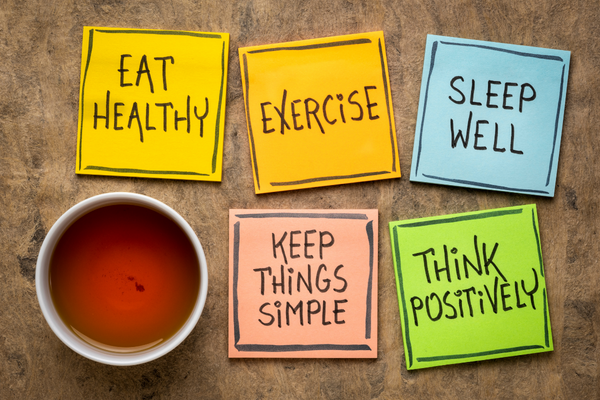
While all of the other examples of ways to combat stress are viable options, the most important of the five is organization. Without organization, it’s easy for you to get off track.
Keeping up with scheduled appointments, and upcoming events, and even making time for implementing exercise, therapy, self-care, and improved lifestyle habits all require that you get organized.
If you’re not the most organized person in the world, no worries.
You can start becoming more organized over time by tackling small tasks in your free time or downtime. For example, the next time you have some free time, take a few minutes to organize your email inbox, appointment calendars, or even your kitchen cabinets.
Getting organized takes the stress out of having to figure out what to do next when things aren’t running so smoothly.
Next Steps for Managing Stress And Depression
Now that you have a better understanding of what stress does to the body and mind, what next steps will you take to reduce the effects of stress in your everyday life?
Will you add in a new 15-minute exercise routine after getting a physical and the go-ahead from your doctor? Or will you take more time out for self-care and spend more time doing things you love?
If you’re thinking about getting therapy, you can easily get started with therapy online.
Leading therapy sites like BetterHelp.com offer free consultations and introductory sessions for online therapy with board-certified therapy providers. The cost of online therapy is drastically cheaper than in-office therapy.
Getting in-person therapy can cost as much as $200.00 an hour in some places. Online therapy options offer a convenient and affordable resource for taking better care of your mental health from the comfort of your home.
Start applying the ways to combat stress for a peaceful life
After reading this article and now you have some effective ways to combat stress, you should be able to identify the negative and positive effects of stress on physical and mental health. You should also be able to recognize when stress is becoming an issue.
If you start to feel run down, depressed, or exhausted, you may be stressed out. Now that you can identify when it’s taking a serious toll on your health, you can more readily identify the best next steps to take to keep stress and depression from taking over your life.
Author bio:
Marie Miguel has been a writing and research expert for nearly a decade, covering a variety of health-related topics. Currently, she is contributing to the expansion and growth of a free online mental health resource with BetterHelp.com. With an interest and dedication to addressing stigmas associated with mental health, she continues to specifically target subjects related to anxiety and depression.

